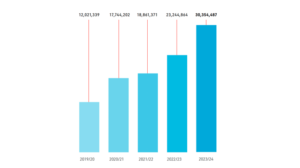The Productivity Commission released a report today, calling for a US-style fair use provision to be put into Australia’s Copyright Act.
Screenrights’ submission to the Productivity Commission report highlighted that far from creating certainty, a comprehensive analysis of fair use from Columbia University Law School described fair use as “a moving target”.
The Productivity Commission report also does not appear to take into account a recent PricewaterhouseCoopers (PWC) cost benefit analysis that analysed the potential impacts of the introduction of fair use provisions as recommended by the Australian Law Reform Commission.
The PWC report finds evidence of significant costs associated with fair use with no evidence of corresponding benefits. In particular, the supposed increase in innovation as a result of fair use is not found in the economic data.
The Productivity Commission report does not acknowledge the wide range of innovative uses that occur under the existing licences, which in many cases go beyond the fair use exception.
Screenrights believes innovation and changing business models are essential but the “moving target” of fair use is not the answer.
Screenrights Chief Executive Simon Lake said, “It is disappointing that the Productivity Commission has not tested the claimed benefits of fair use. We look forward to addressing this in our response to the Commission”.
Mr Lake said there are other law reform paths to modernise our Copyright system that don’t involve the disruption of fair use.
Responses to the Commission will be made by June 3, with the final report expected in August 2016.



